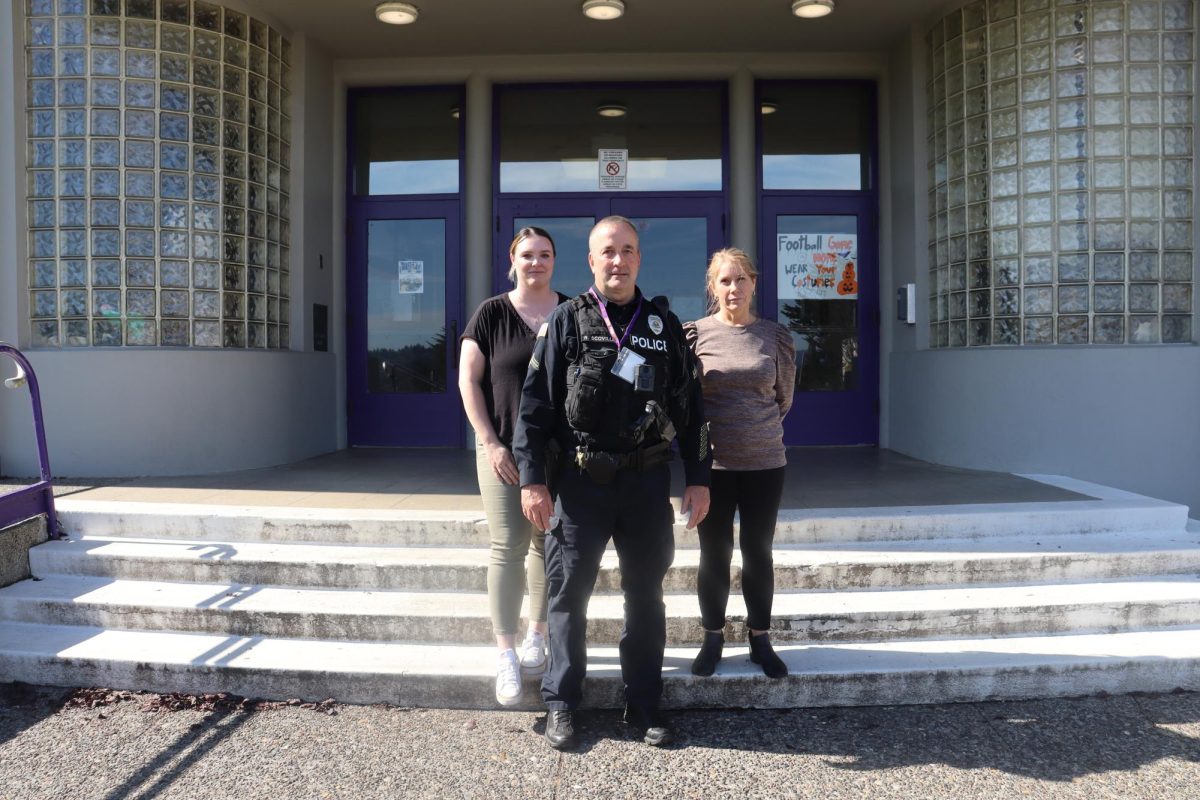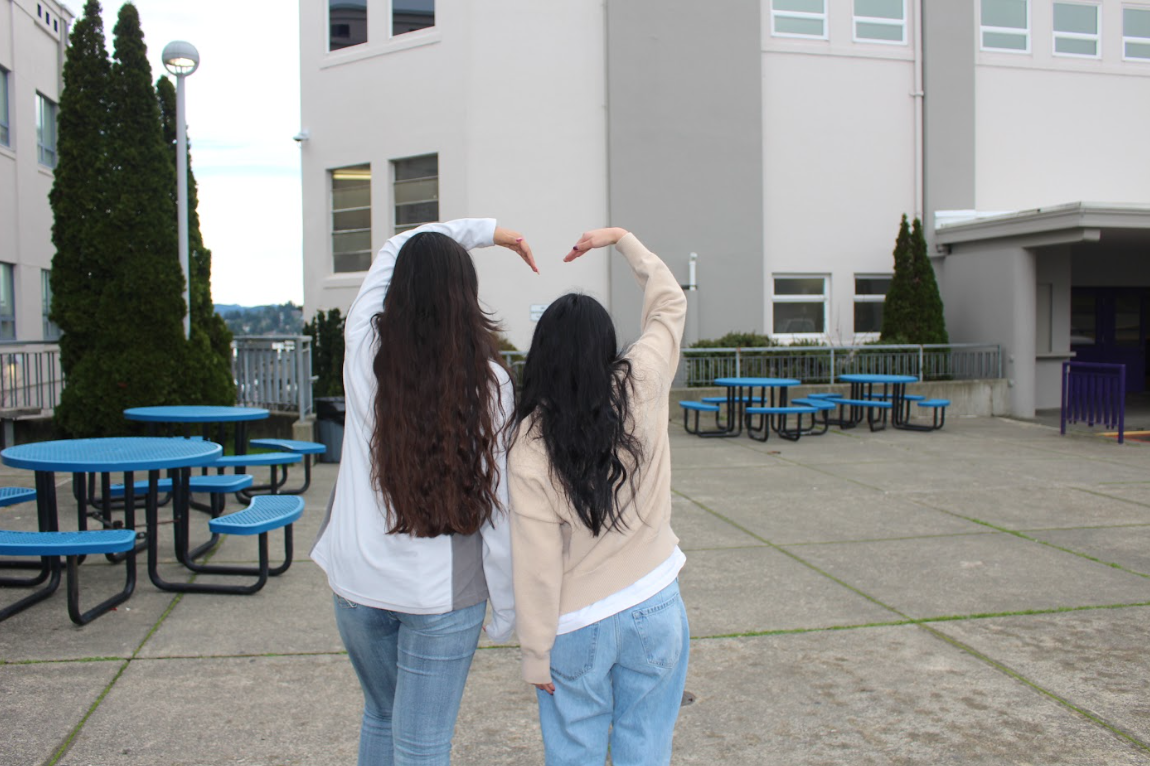Are we killing the Earth?
For the past several decades, the sustainability of the Earth has been a hot topic. In short, humans are using natural resources quicker than they can be replenished. The real question is whether the Earth, the only livable planet we have, can continue to sustain humankind.
According to National Geographic, humans affect the physical environment through a variety of methods such as overpopulation, high pollution, deforestation and much more. These actions have caused poor air quality, soil erosion, undrinkable water, and overall climate change. These are the same issues that today’s scientists are working to solve.
Overpopulation is the issue that ties it all together. Even though humans are on a slow-moving downward trend of population growth since the 1900s, the amount of people on planet Earth creates a high demand for resources and goods, leading to increased emissions
as we acquire more transportation and food production. Decomposition plays into this pollution too, as there is an overabundance of dead organisms producing nitrogen.
The amount of resources one individual uses is known as a carbon and ecological footprint. This involves measuring the number of greenhouse gasses–such as carbon dioxide, methane, and nitrate oxide–one contributes to the environment. Each community also creates its own carbon footprint.
Environmental organization The Nature Conservancy says that the average person in the U.S. has a carbon footprint of 16 tons, which would need to be reduced to 2 tons to limit climate change.
Marshfield High School science teacher Anthony Johnson had science students take an ecological footprint test in one of his classes. The results showed that society would need seven Earths to support the current lifestyle standards. Meaning that in the United States, people are consuming resources at an unsustainable rate and producing excessive emissions that will harm future generations.
Another topic that is closely related to resource usage is demand. There is a high demand for resources, particularly fossil fuels and other non-renewable sources of energy. In order to support the amount of energy needed for mankind at this time, extreme measures need to be taken. In the past, digging and mining for fossil fuels was a way that supported the energy demand, however, that is not a viable option any longer. At the rate it’s being used, these resources will be depleted. They cannot be replenished; they require thousands of years to form and we are not using them in a sustainable way. According to Stanford University, we will run out as soon as the year 2052.
Humanity is facing a deadline. Due to this harsh reality, the importance of sustainability cannot be emphasized enough. It will continue to be an issue until we begin to move in the right direction.
“I don’t feel like we are doing enough at all to protect our environment for generations to come,” said MHS junior Harper Thompson.
Thompson felt that all of society could do a better job at living more sustainably and reducing the carbon footprint for the benefit of future generations.
Some, such as MHS history teacher Garrett King, believe that the Earth has the capability of healing itself, but at a cost.
“I don’t believe it is as much killing the Earth, the Earth will reset itself however human survival may be at risk,” he said.
This could work out to the coming of another ice age or similar glacial period, which naturally occur approximately every 100,000 years. Another ice age would result in a drastic increase in sea levels, a significant migration and distribution of plants and animals, as well as possible erosion of land. It is possible for humans to survive an ice age, but even then there is no guarantee of access to the materials required for survival. It comes back to the main point of sustainability.
Not everyone follows this line of thought, however. Some believe that things will be considered as they have for years.
“No, no the Earth isn’t going anywhere, it’s a floating rock.” said MHS student Noah Takis.
Sustainability in today’s world would mean utilizing biofuels, renewable energy, and overall sustainable practices. This could look like using hydroelectric, solar, and wind power as well as using vehicles that run off of ethanol or hydrogen fuel cells. From day to day, it is crucial that these practices are utilized or we won’t see their benefits. As a result it is easy to claim that measures currently taken may not be enough and resource sustainability is low.
“No, it is not a matter of belief but it is science ” says Johnson.
It’s easy to see that while the problem is being acknowledged, it’s not being solved.
“I feel like maybe we are moving in a direction [of supporting Earth’s success] but we are not properly executing it,” student Cullen Cribbins says.
Johnson also points out that even in his position as an environmental science teacher, he’s not doing enough to cut down on his own carbon footprint.
“I recycle but that does not solve the problem, it only makes it another third-world country’s issue,” he said. “All these water bottles end up in someone’s else’s river.”
Your donation will support the student journalists of Marshfield High School. Your contribution will allow us to purchase equipment and cover our annual website hosting costs.

Emma is a part of the graduating class of 2023 and it is her first year in journalism. Emma likes to dance, and excessively binge Netflix. She worries...


























